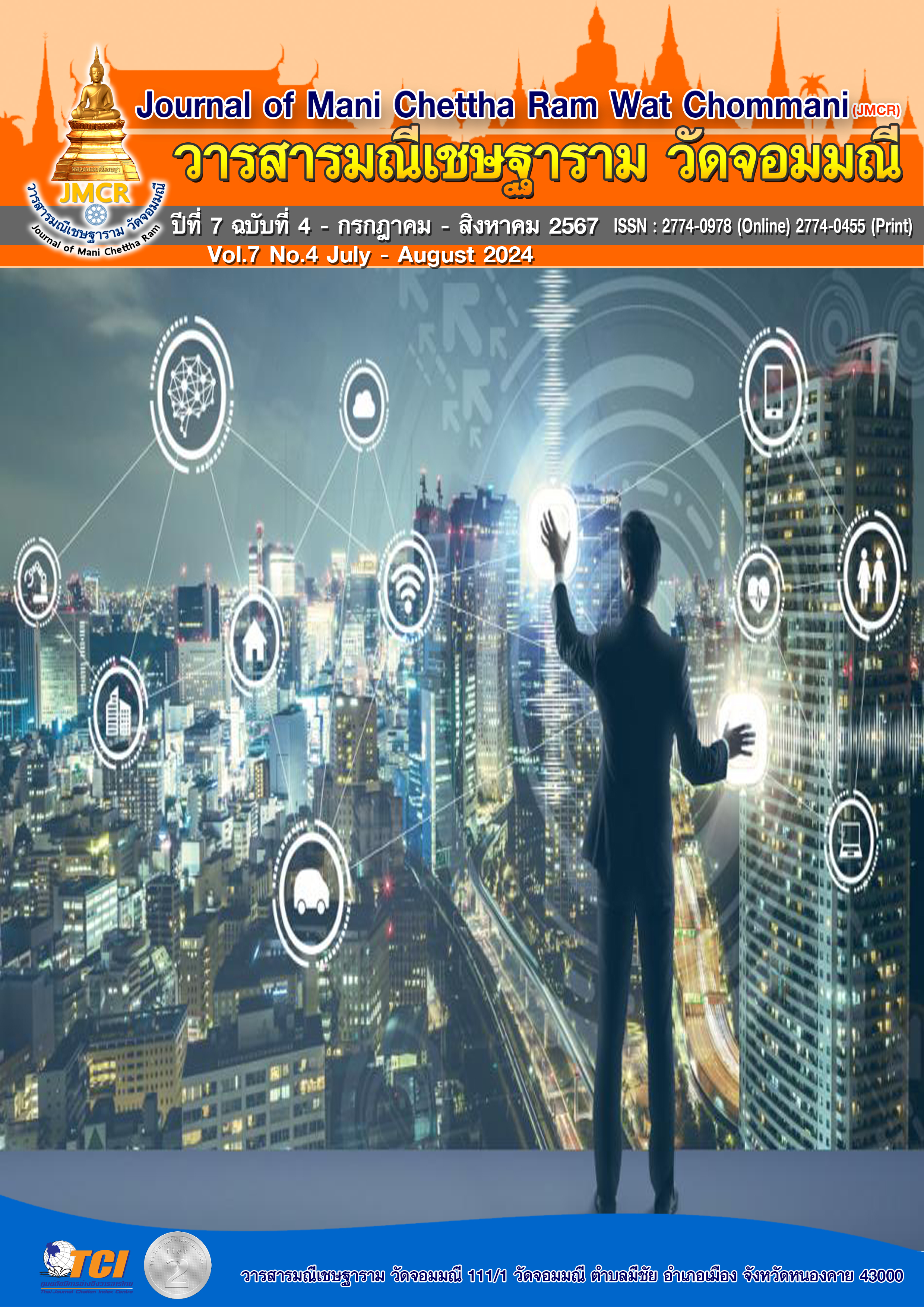SUSTAINABLE BANKING MODEL FOR THAILAND
Keywords:
Time Bank;, Operating Model;, ThailandAbstract
The objectives of this research were 1) to analyze and understand the mechanisms of time banking operations in Thailand, 2) to study problems and obstacles in operating time banks in Thailand and 3) to construct guidelines and recommendations to develop a sustainable time banking model for Thailand. This research employed a qualitative method by creating an in-depth interview. The samples were selected using purposive sampling as well as reference sampling of 20 people and experts (Snowball Sampling). Content analysis was used to analyze the data.
The research results revealed that: 1) time banking is a system of mutual assistance exchange by replacing money with units of time. The activities can be exchanged in various forms, such as taking care of the elderly, teaching, training various skills, etc. Members can accumulate time by helping others. When the required amount of time has been accumulated, they can withdraw time units to receive services from others. The time bank supervision mechanism in Thailand consists of two levels including the local level and the national level. 2) Additionally, the problems and obstacles in operating time banks in Thailand were caused by internal and external factors. Internal factors included the operating style of the time bank itself, such as unfair compensation patterns, insufficient budgets, inconvenient locations, insufficient budgets, inconvenient locations, unclear time tracking during transactions, inaccurate time recording, unclear terms and limitations on time usage etc. and ineffective methods for monitoring and evaluating activity levels. As for external factors, people's attitudes towards time banks were not yet widely accepted. 3) Finally, the development of a sustainable time bank for Thailand should take into consideration various factors that cover economic, social and environmental aspects so that a time bank can be a genuine tool for social and community development.
References
กรมกิจการผู้สูงอายุ. (2560). ชุดความรู้การดูแลตนเองและพัฒนาศักยภาพผู้สูงอายุด้านความมั่นคงในชีวิต. กรุงเทพมหานคร: กระทรวงการพัฒนาสังคมและความมั่นคงของมนุษย์.
กรมกิจการผู้สูงอายุ. (2564). คู่มือธนาคารเวลาของประเทศไทย. กรุงเทพมหานคร: บริษัทอมรินทร์พริ้นติ้งแอนด์พับลิชชิ่ง จำกัด (มหาชน).
กุลธิดา จันทร์เจริญ และเนตร หงส์ไกรเลิศ. (2563). การวิจัยและพัฒนาข้อเสนอเชิงนโยบายในการดำเนินงาน “ธนาคารเวลา”. กรุงเทพมหานคร: สำนักงานสนับสนุนการพัฒนานโยบายสาธารณะเพื่อสุขภาวะรองรับสังคมสูงวัย.
จักรี อดุลนิรัตน์. (2564). มาตรการกฎหมายเกี่ยวกับธนาคารเวลาในประเทศไทย. วารสารนิติศาสตร์มหาวิทยาลัยนเรศวร, 14(2), 111-135.
ชัยฤทธิ์ อิ่มเจริญ และสิรินธร สินจินดาวงศ์. (2565). การศึกษาความพอใจในชีวิตจากกระบวนการแลกเปลี่ยนเรียนรู้ประสบการณ์การทำงานจิตอาสาสำหรับสมาชิกผู้สูงอายุในธนาคารเวลา. วารสารการวัดผลการศึกษา, 39(105), 239-249.
นิภัทรา นาคสิงห์. (2562). ธนาคารเวลา. เรียกใช้เมื่อ 24 พฤษภาคม 2566. จาก https://readthecloud.co/time-bank/.
สำนักงานกองทุนสนับสนุนการสร้างเสริมสุขภาพ. (2565). คู่มือธนาคารเวลา. เรียกใช้เมื่อ 24 พฤษภาคม 2566 จาก https://www.thaihealth.or.th.
Kim, H. K. (2019). Exploring social innovation and time bank: focus on the elderly healthcare in the Gangwon Province. Asian Journal of Innovation and Policy, 8(2),208-237.
Wu, Y., Ding, Y., Hu, C., & Wang, L. (2021). The Influencing Factors of Participation in Online Timebank Nursing for Community Elderly in Beijing, China. Frontiers in Public Health, 9, 650018.




